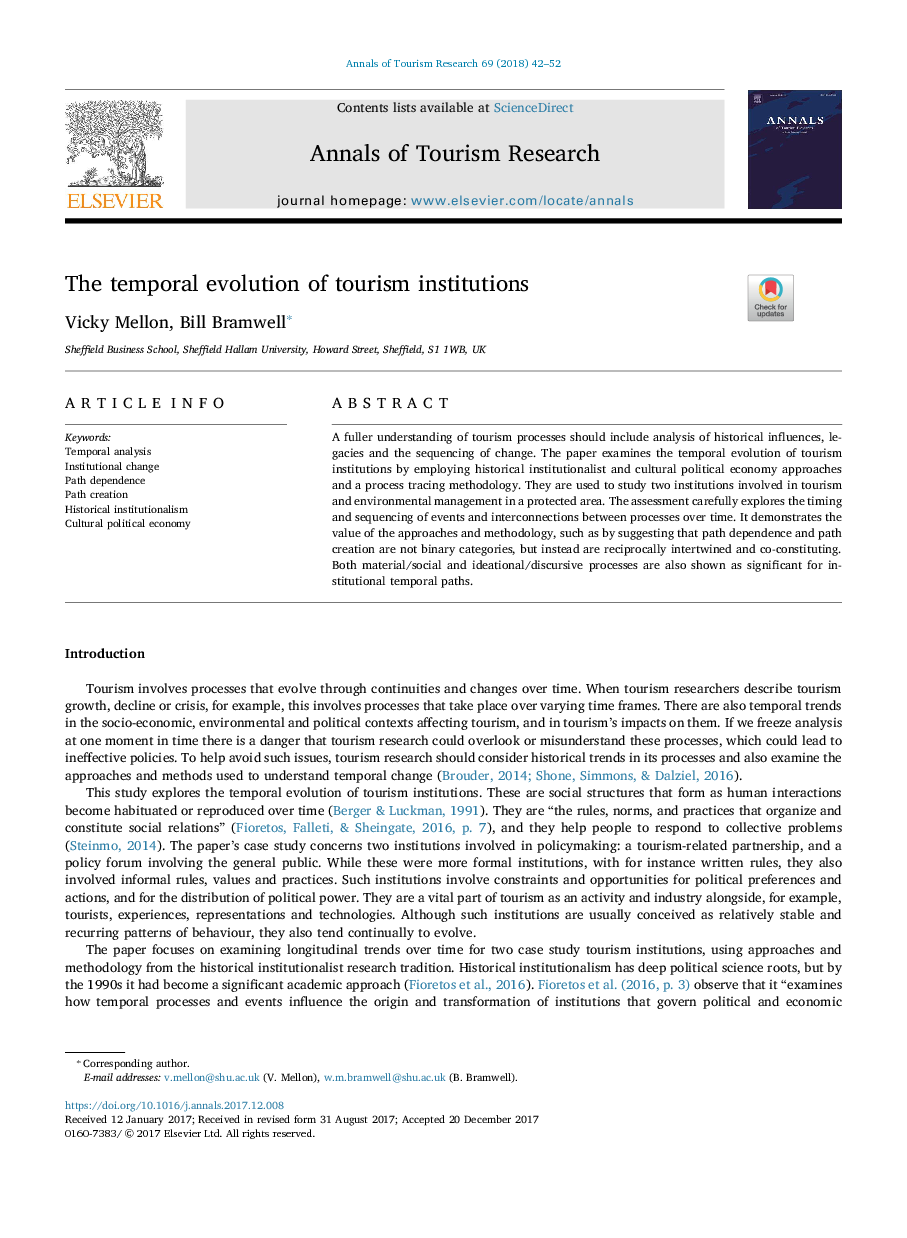ترجمه فارسی عنوان مقاله
تکامل زمانی نهادهای گردشگری
عنوان انگلیسی
The temporal evolution of tourism institutions
| کد مقاله | سال انتشار | تعداد صفحات مقاله انگلیسی |
|---|---|---|
| 81846 | 2018 | 11 صفحه PDF |
منبع

Publisher : Elsevier - Science Direct (الزویر - ساینس دایرکت)
Journal : Annals of Tourism Research, Volume 69, March 2018, Pages 42-52
ترجمه کلمات کلیدی
تجزیه و تحلیل موقتی، تغییرات سازمانی، وابستگی مسیر، ایجاد مسیر، نهادگرایی تاریخی، اقتصاد سیاسی فرهنگی،
کلمات کلیدی انگلیسی
Temporal analysis; Institutional change; Path dependence; Path creation; Historical institutionalism; Cultural political economy;
ترجمه چکیده
درک کاملتر از فرایندهای گردشگری باید شامل تجزیه و تحلیل تأثیرات تاریخی، میراث و توالی تغییر باشد. این مقاله، تحولات زمانی مؤسسات گردشگری را با استفاده از رویکردهای اقتصادی سیاسی تاریخی و سیاسی و روش شناسایی فرایند بررسی می کند. آنها برای مطالعه دو موسسه درگیر در گردشگری و مدیریت زیست محیطی در یک منطقه حفاظت شده مورد استفاده قرار می گیرند. ارزیابی به دقت بررسی زمان بندی و توالی رویدادها و ارتباطات بین فرایندها در طول زمان را بررسی می کند. این ارزش رویکرد ها و روش شناسی را نشان می دهد، از قبیل پیشنهاد می کند که وابستگی مسیر و ایجاد مسیر، دسته های باینری نیست، بلکه در عوض متقابلا در هم آمیخته و سازنده هستند. هر دو فرآیند مادی / اجتماعی و ایدهآل / گفتمانی نیز به عنوان مهم برای مسیرهای زمانی سازمانی نشان داده شده است.

